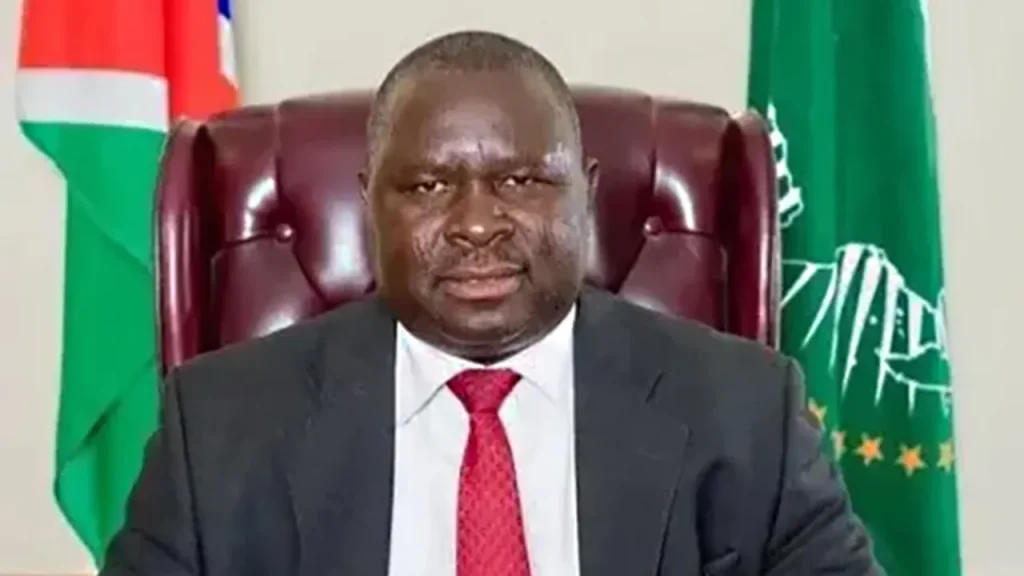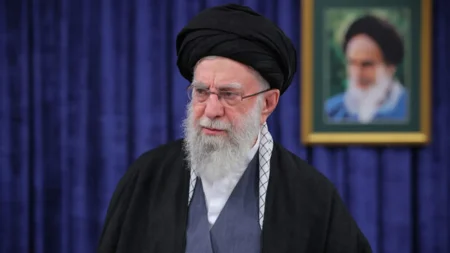Namibian Politician’s Unusual Name Highlights Colonial Legacy
In the sun-drenched northern region of Namibia, a local politician is making international headlines not for his policies, but for his name. Adolf Hitler Uunona, a seasoned member of Namibia’s ruling SWAPO party, is expected to comfortably retain his council seat in the Ompundja constituency of the Oshana region. While election results aren’t yet finalized, projections suggest he’ll win by a substantial margin, continuing his established political career. This pattern follows his previous electoral successes, where his governance has been characterized by commitment to local development rather than anything connected to his notorious namesake.
The story behind Uunona’s name reveals much about Namibia’s complex colonial history. Born during a time when the historical weight of certain names wasn’t fully understood in his community, Uunona explains that his father gave him the name without comprehending its global significance. “It was a perfectly normal name for me when I was a kid,” he told German newspaper Bild with remarkable candor. “It wasn’t until I grew older that I realized this man wanted to subjugate the whole world and killed millions of Jews.” In daily life, he generally goes by Adolf Uunona, a practical adaptation to the uncomfortable reactions his full name often elicits. His situation highlights how personal identity can become unexpectedly entangled with world history.
The presence of Germanic names throughout Namibia stems directly from the country’s colonial past. From 1884 to 1915, Namibia existed as a German colony, a period that left indelible marks on the nation’s cultural landscape. This colonial legacy manifests in place names, architecture, and even personal naming practices that persisted long after German rule ended. Historians note that this sometimes results in jarring combinations by modern standards, though they typically carry no ideological significance within local communities. Uunona’s case is perhaps the most striking example of how colonial influence can echo through generations in ways both unexpected and unintended.
SWAPO, the political party Uunona represents, has its own fascinating evolution mirroring Namibia’s post-colonial journey. Originally formed as a liberation movement with socialist foundations, SWAPO led the country to independence in 1990. In the decades since, the party has undergone a significant ideological transformation, shifting toward more centrist, market-oriented governance approaches while maintaining its dominant position in Namibian politics. This evolution reflects the pragmatic adjustments many post-colonial African governments have made when transitioning from resistance movements to governing parties. Within this context, Uunona has built his political career as a local representative focused on constituent needs rather than ideological battles.
The Ompundja constituency itself provides important context for understanding Uunona’s political world. This modest district encompasses 466 square kilometers with just 4,659 inhabitants spread across 19 administrative centers. Like many rural constituencies in Namibia, it faces development challenges including infrastructure needs, access to education, and economic opportunities. These local concerns, rather than international attention over his name, form the daily substance of Uunona’s political work. When discussing the attention his name receives, he emphasizes this disconnect with gentle humor: “The fact I have this name does not mean I want to conquer Oshana,” referencing his small constituency rather than harboring any grandiose ambitions.
What makes this story particularly noteworthy is how it illuminates the complex intersections between personal identity, colonial history, and contemporary politics in post-colonial nations. Namibia, like many African countries, continues to navigate the lingering effects of European colonization while building its independent future. Uunona’s unusual situation serves as a vivid reminder that history’s echoes can manifest in unexpected ways, creating personal and cultural complexities that defy simple interpretation. As Namibia continues developing its democratic institutions and addressing its colonial past—including recent negotiations with Germany regarding the return of historical artifacts—stories like Uunona’s highlight the nuanced ways in which countries and individuals reconcile complicated historical legacies with contemporary realities. Through it all, Uunona continues serving his constituency, a local politician whose unusual name has unexpectedly made him a global conversation piece.















